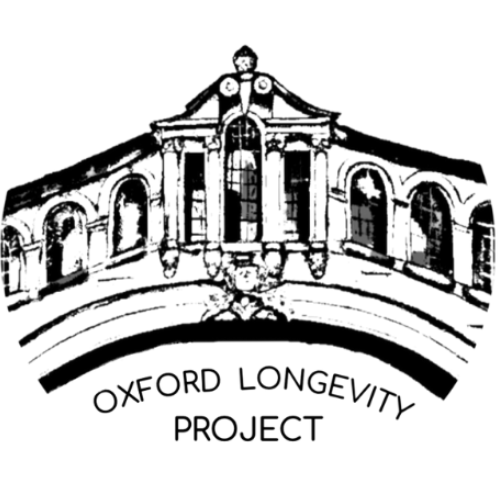Hallmark 11: Chronic Inflammation
Inflammation is a vital defence mechanism that helps the body heal and restore balance, but problems arise when this response fails to switch off. Chronic, low-grade inflammation can quietly damage tissues, disrupt cellular communication, and accelerate ageing, making it a key process to understand and learn how to manage.
Hallmark 10: Altered Intercellular Communication
Cells are constantly communicating with one another, but with age these conversations become increasingly noisy and confused. This blog explores how altered intercellular communication contributes to ageing and highlights emerging research and lifestyle approaches that may help restore clear cellular conversations.
Revolutionizing Retirement: Designing Your Third Age
Retirement can be a launchpad for contribution.
Hallmark 9: Stem Cell Exhaustion
Stem cell exhaustion marks the point when the body’s repair systems begin to fail, but understanding it offers hope: by protecting and supporting our stem cells, through healthy
living today and innovative therapies tomorrow, we may help the body keep shapeshifting and rebuilding itself for longer.
Understanding ageing
OLP Board Member Sir Muir Gray explains that ageing is a natural biological process -not a decline to be feared - and that by understanding it correctly, we can take action to live healthier, fitter, and more fulfilling lives at every stage.
Hallmark 8: Cellular Senescence
Cellular senescence, often called “zombie cells,” occurs when damaged cells stop dividing but refuse to die, releasing inflammatory signals that disrupt nearby tissues and accelerate ageing. While drugs like senolytics and senomorphics aim to target these stubborn cells, lifestyle choices, regular movement, plant-rich diets, quality sleep, and stress management—remain our most effective defence against their build-up.
Ideas for Improving Your Environment
This month’s Live Longer Better Plan explores how improving our environment can enhance health, resilience, and well-being. Submitted by an OLP subscriber and supporter, PhD candidate Gerda Bukauskaitė-Žiūkienė, this feature shares ten simple, evidence-based actions to help you improve your environment for yourself and others.
A Letter from Sir Muir Gray: How to improve your Environment
Sir Muir Gray introduces the fourth theme of the Live Longer Better Plan showing how shaping our physical and social environments to support activity, connection, and purpose can help us live longer better.
Hallmark 7: Mitochondrial Dysfunction
Mitochondrial dysfunction is the decline in your cells’ ability to produce energy efficiently, leading to increased oxidative stress and cellular damage. As we age, this creates a vicious cycle of reduced energy and rising damage, which accelerates ageing and contributes to degenerative diseases. Fortunately, lifestyle strategies like exercise, balanced nutrition, and sun protection - along with emerging therapies such as NAD⁺ boosters - can help support mitochondrial health and promote healthier ageing.
A Letter from Sir Muir Gray: Preventing and managing disease
In this third theme of the Live Longer Better Plan, Sir Muir Gray explains how many diseases often linked to ageing can actually be prevented or managed through lifestyle and environmental changes—showing that with the right knowledge and actions, you can prevent, manage, and live well for longer.
Hallmark 6: Dysregulated Nutrient Sensing
Dysregulated nutrient sensing is your body’s impaired ability to detect and respond to food and energy signals, disrupting the balance between growth and repair. As we age, this shift keeps cells stuck in “growth mode,” accelerating wear and tear and driving ageing. Fortunately, targeted lifestyle choices like intermittent fasting, balanced nutrition, and regular movement can help restore this system, supporting healthier, more resilient ageing.
A Letter from Sir Muir Gray: Regaining and Improving Fitness
In this second theme of the Live Longer Better Plan, Sir Muir Gray highlights how fitness is essential to healthy ageing. Start moving today—physical activity isn’t just beneficial, it’s medicine, reducing dementia risk by 30%, heart disease by 35%, and type 2 diabetes by 50%.
Hallmark 5: Disabled Autophagy
Autophagy is your body’s built-in cellular recycling system, clearing out damaged components to maintain health and energy. As we age, this process weakens, contributing to inflammation, disease, and accelerated ageing - earning it recognition as a key hallmark of ageing. Fortunately, lifestyle factors can reactivate this system therefore naturally boosting autophagy offers a powerful and actionable path to healthier ageing.
A letter of evidence-based enthusiasm from Sir Muir Gray
With evidence-based optimism, Sir Muir Gray introduces the Live Longer Better Plan (A4, not AI)—transforming the science of longevity into practical, personalised action so we can not only live longer, but better.
Hallmark 4: Loss of Proteostasis
Loss of Proteostasis examines how ageing disrupts the cell’s ability to produce, fold, and clear proteins — leading to toxic build-up and neurodegenerative disease. This newsletter highlights emerging research on heat-shock proteins, autophagy activation, and compounds like spermidine and rapamycin that may protect protein quality control and support healthy ageing.
hallmark 3: Epigenetic Alterations
The third hallmark of ageing revolves around epigenetic "switches" that control which genes are active - mechanisms that can be influenced by lifestyle choices and environmental factors throughout life. These reversible changes represent one of the most actionable aspects of biological ageing, offering unprecedented opportunities to potentially slow, or even partially reverse the ageing process through evidence-based interventions.
The Dementia Surge: What You Need to Know and How to Protect Your Brain
New research reveals Americans over 55 now face a staggering 42% lifetime risk of developing dementia. This blog breaks down not only what's behind this troubling trend, but more importantly, the science-backed strategies you can implement today to protect your cognitive health for decades to come.
hallmark 2: Why do we age? Exploring Telomere Loss
Today we continue our Hallmarks of Ageing series with the second hallmark, telomere shortening, a gradual process wherein the protective ends of chromosomes diminish with each cell division.
How our surroundings shape our longevity
Recent research from Oxford University, utilising the UK Biobank to study nearly half a million people, has quantified how our surroundings and lifestyle choices influence our lifespan and disease risk more significantly than our genetic makeup, finding that environmental factors explain approximately 17% of variation in premature mortality, whilst genetics explained just 2%.




















